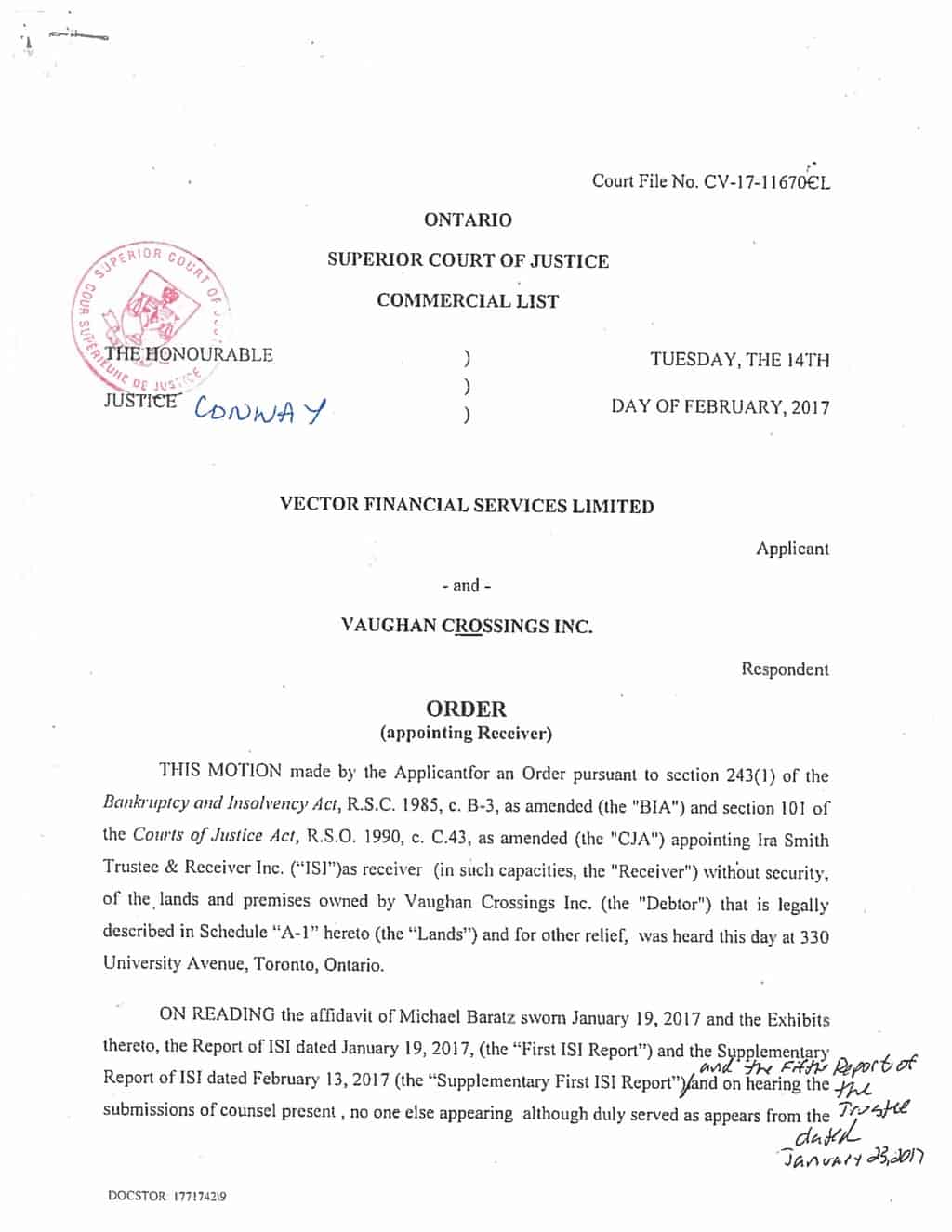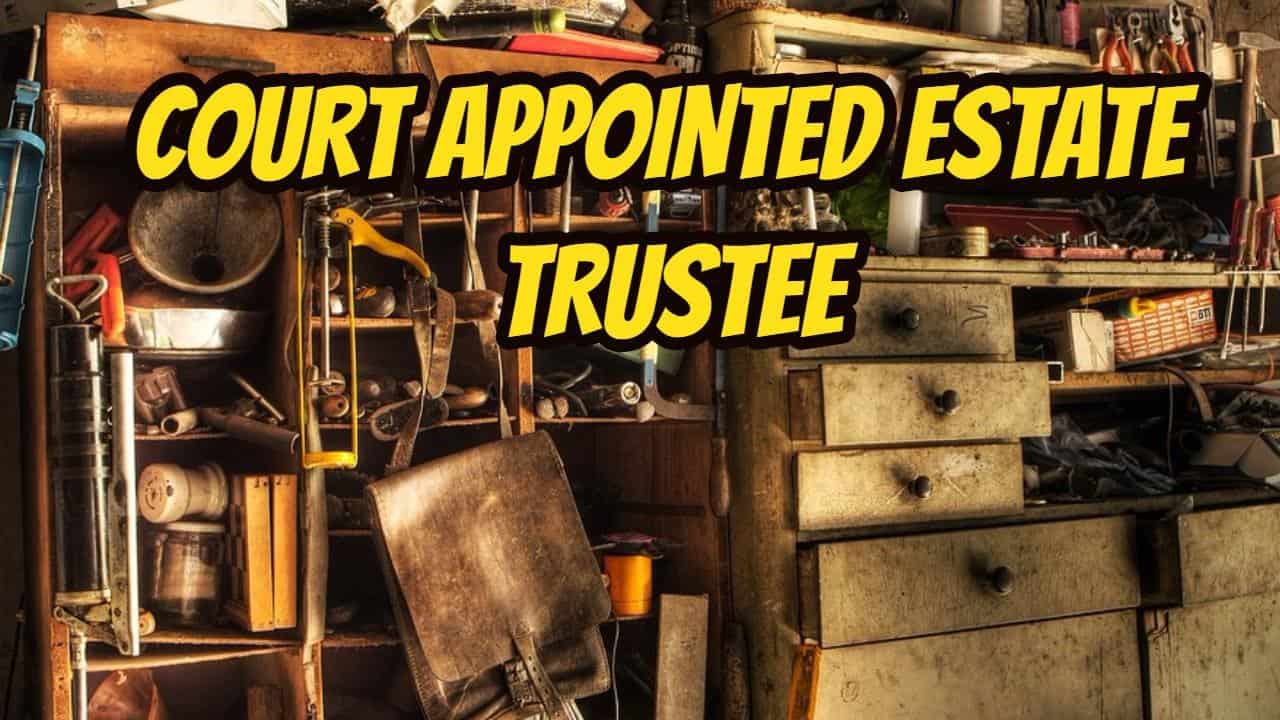The Ira Smith Trustee Team is absolutely operational and Ira, in addition to Brandon Smith, is readily available for a telephone consultation or video meeting. We hope that you and your family are safe and healthy.
Receivership meaning introduction
My last Brandon’s blog was about bankruptcy meaning; the duties, rights and responsibilities of the different stakeholders in a bankruptcy administration. So I thought it would be fitting to follow that up with a blog on the topic of receivership meaning.
In this Brandon’s Blog, I answer the 14 most often asked questions about the meaning of receivership.
Receivership meaning: What’s the meaning of “receivership” in simple words
The receivership meaning in English, according to the Merriam-Webster dictionary is:
“Definition of receivership
1: the office or function of a receiver
2: the state of being in the hands of a receiver”
Those are the simplest words I can think of. Unfortunately, it does not tell you much. I doubt that it aids in your understanding. Simple words don’t help. Let’s get a little more complex.
Receivership meaning: What does it mean when a receiver is appointed?
First, a receivership is a remedy for secured creditors, such as a chartered bank or another lender who lent money to a company and took back valid security. One of the terms of the security agreement will be that upon one or more events of default, the secured creditor has the right to appoint a receiver.
When a secured creditor wishes to realize upon the assets of the borrower company that is subject to its security, they employ the services of a Licensed Insolvency Trustee (Trustee) to be the receiver. A receivership is performed under the authority of the Bankruptcy and Insolvency Act (Canada) (BIA).
In Canada, only a Trustee can be a receiver. The secured creditor appoints the receiver to take possession of the collateral covered by the lender’s security. The receiver then conducts a receivership.
Receivership meaning: How is a receiver appointed?
There are two kinds of receiver appointments: (i) private appointment; or (ii) court appointment. The type of appointment depends upon the circumstances facing the putative receiver. The main question to answer is are there practical or legal reasons why the court is required to make decisions and oversee this proposed receivership. If no, then a private appointment can take place. If yes, then an application to court needs to be made to have a receiver appointed.
Before being able to either make a private appointment or seek the assistance of the court, the secured creditor must give the borrower company adequate notice. It must provide the borrower with written notice of the events of default and demand full repayment of the loan. The lender must give the company at least 10 days’ notice before being able to appoint the receiver. The company that borrowed the money can waive the 10 day notice period, but the lender cannot.
Receivership meaning: What happens when the receiver is called in?
When the receiver is appointed, there are certain steps that the receiver must take. The receiver is charged with the responsibility of taking possession of the assets of the company in receivership. The receiver must get possession and control of the assets to safeguard them, wherever they are located. The receiver must make sure that an inventory of all the assets is quickly taken and that the assets are adequately insured.
Keep in mind that the assets belong to a company that was carrying on an active business. Therefore, one of the first things the appointed receiver must decide is whether or not to carry on the business of the company. The receiver must answer many questions, including:
- Was the business already shut down when the receiver was appointed?
- Are experienced employees available and willing to work for the receiver?
- Will the assets of the company be worth more if sold on an operating business basis than on a shutdown liquidation basis?
- Can the receiver operate the business in a cash-flow positive way?
- If the receiver is estimating that the business being run in receivership will produce negative cash flow, is the secured creditor willing to fund the losses to take the chance that the assets will sell for a higher price than if the business is shut down right away?
- Are there any legal, regulatory, or environmental issues that would preclude the receiver from operating the business?
- Can the business be run safely?
- Is there property located on the company’s premises that belong to third parties and therefore are not assets of the company covered by the lender’s security? This includes any assets, normally inventory, that might be subject to the right of revindication.
These are just some of the considerations for the receiver. The receiver must be able to make decisions rather quickly. The receiver must also be able to support the decisions with facts and evidence. So as you can see, the receivership meaning, in the beginning, means that there is a lot of hectic activity and decisions.

Receivership meaning: Under receivership meaning
So when the company is placed in receivership, it is under receivership. Once the receiver makes the various decisions I talked about above, with facts backing them up, the receiver then needs to get approval.
In a private appointment, the receiver only needs the approval of the secured creditor that appointed the receiver in an attempt to recover its secured loan. In a court appointment, the receivership meaning is that the receiver needs to take several steps.
First, the appointed receiver should make sure that the secured creditor who applied to the court for the receivership appointment order is onside with the receiver’s recommendations. Once that is the case, the receiver needs to prepare its report to court to advise the court of the receiver’s activities up to that date and the receiver’s recommendations for going forward in the receivership administration. The receiver is asking the court for its approval of the actions and activities of the receiver to date and for its go-forward recommendations.
Receivership meaning: What does a receiver do in business
Once the receiver receives the appropriate approval from the holder of the secured debt in a private appointment, or the court order approving the receiver’s recommendations, it then proceeds with implementing its recommendations in the receivership administration. If the receiver is continuing to run the business while advertising the business assets for sale, that is called a going-concern sale.
If the receiver is not operating the business and is just selling the assets of the closed-down business, that is called a liquidation sale. That is what happens in a liquidation.
Receivership meaning: What is the difference between receivership, liquidation, and insolvency?
When trying to figure out the receivership meaning, I have been asked the following questions many times:
- What is the difference between receivership and liquidation?
- What’s the difference between liquidation and insolvency?
- What happens when a company goes into receivership in Canada?
I hope that based on what you have read so far, you now understand that receivership is an enforcement action started by the holder of secured debt or a secured loan. Liquidation can have two meanings. The first one is when the receiver (or bankruptcy trustee) sells the assets while NOT operating the company’s business. The second meaning of the word is in the phrase “statutory liquidation”. This happens when the shareholders decide to close down the business, but the value of all the assets is enough to provide funds to not only pay off all the debts. It also provides funds for the shareholders. A statutory liquidation happens when the company is solvent.
Insolvency, or insolvent, is a financial state. It means that the company cannot pay its debts as they come due. It also means that if the company’s assets are liquidated, there would not be sufficient funds to pay off all of the liabilities.
Finally, my whole discussion above is meant to explain in a receivership meaning sense, what happens when a company goes into receivership in Canada.
Receivership meaning: How do receivers get paid
The financial institution or other secured creditor who is responsible for the appointment of the receiver is liable to pay for the cost of the receivership. The receiver has a first charge against the assets of the company secured by the lender. That first charge is subject only to any valid trust claim against those same assets.
If the assets are insufficient to pay for the cost of the receivership and fully repay the outstanding debt of the secured creditor, then that creditor will suffer a shortfall.
Receivership meaning summary
I hope you have enjoyed this bankruptcy meaning Brandon’s Blog. Hopefully, you have better insight now into the fact that a sick insolvent company’s business can be saved by doing a sale of its assets to a healthy organization.
Do you or your company have too much debt? Are you or your company in need of financial restructuring? The financial restructuring process is complex. The Ira Smith Team understands how to do a complex restructuring. However, more importantly, we understand the needs of the entrepreneur or the person who has too much personal debt.
You are worried because you are facing significant financial challenges. It is not your fault that you are in this situation. You have been only shown the old ways that do not work anymore. The Ira Smith Team uses new modern ways to get you out of your debt troubles while avoiding bankruptcy. We can get you debt relief freedom.
The stress placed upon you is huge. We understand your pain points. We look at your entire situation and devise a strategy that is as unique as you and your problems; financial and emotional. The way we take the load off of your shoulders and devise a debt settlement plan, we know that we can help you.
We know that people facing financial problems need a realistic lifeline. There is no “one solution fits all” approach with the Ira Smith Team.
That is why we can develop a restructuring process as unique as the financial problems and pain you are facing. If any of this sounds familiar to you and you are serious in finding a solution, contact the Ira Smith Trustee & Receiver Inc. team today.
Call us now for a free consultation.
We will get you or your company back on the road to healthy stress-free operations and recover from the pain points in your life, Starting Over, Starting Now.
The Ira Smith Trustee Team is absolutely operational and Ira, in addition to Brandon Smith, is readily available for a telephone consultation or video meeting. We hope that you and your family are safe and healthy.










